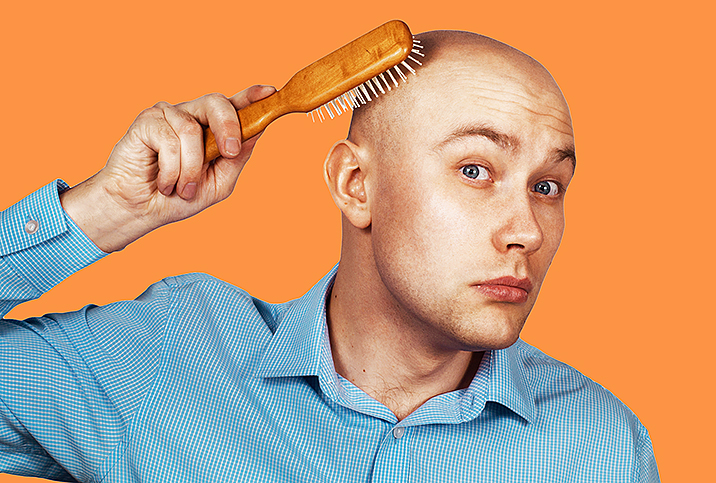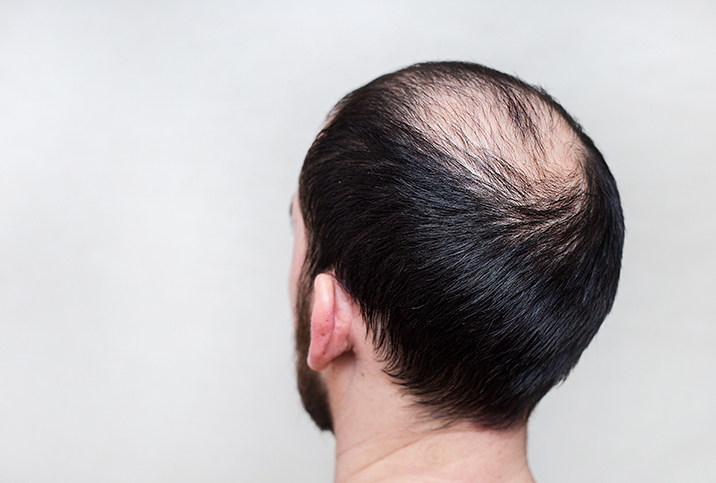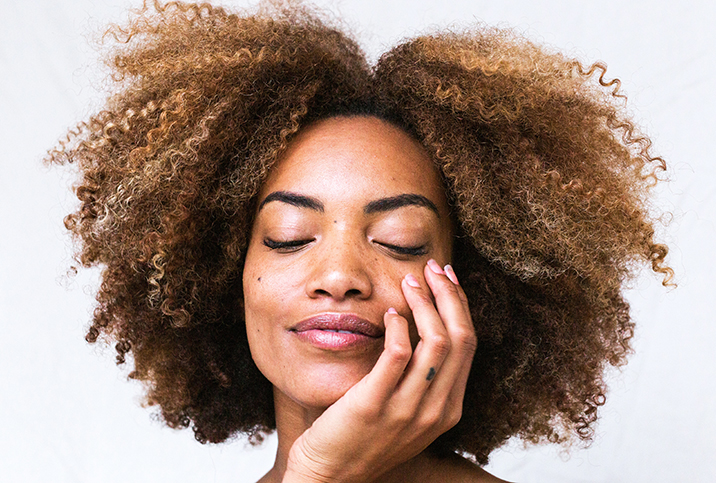To Gray or Not to Gray: For Men

Let's face it: It's easier for men to embrace gray hair than it is for women. In our society's terminology, there's no female counterpart to the desirable "sophisticated silver fox."
However, whereas the estimates of U.S. women coloring their hair vary from 65 to 85 percent, the same practice is very different for men. For men, there is a very real social stigma attached to coloring hair.
For many men, the question of whether to gray or not to gray has become very complicated.
Graying: The stats
After age 30, your risk of going gray increases by 10 to 20 percent every decade. Data show that 50 percent of the population has a significant amount of gray hair by age 50.
While the vast majority of men opt not to color their hair and instead rock a graying look, the number of males coloring their hair at salons or with home-care products is on the rise—up to 7 percent in 2010 from 2 percent in 1999, according to New Jersey-based Multi-sponsor Surveys, a market research firm. Rates are also higher in older men ages 50 to 64, up to 11 percent.
Why we gray
Going gray is a natural part of the aging process. The color in our hair is produced by pigment cells in the hair follicle. As we get older, the number of pigment cells in hair follicles slowly drops and the hair grows "unpigmented"—that is, new hair is either gray, white or silver.
The age when we go gray depends primarily on genetics. Ask your parents or siblings when they started to go gray and that should be a good indication of when you can expect the same.
While stress gets the blame, current research suggests stress itself cannot cause gray hair. It can, however, cause a common condition called telogen effluvium. This speeds up the hair cycle and results in more frequent shedding and replacement of hair. When the hair is replaced, it could come back in gray, speeding up your graying process by a few years. Other medical conditions can cause graying: B12 deficiency, alopecia areata, thyroid disease, vitiligo, tuberous sclerosis and neurofibromatosis.
The benefits of going gray
Going gray is a natural process, and letting your locks do their thing means a lot less fuss and worry. You don't have to endure ridicule from buddies as you spend money and take time out of your day every four to six weeks for a touch-up.
You can enjoy yourself just as you are, feeling authentic and real.
Stereotypically, gray hair in men has always been considered distinguished or associated with wisdom and power. Research carried out by the Math.com website found that an impressive 72 percent of women said they found men with gray hair to be more attractive than those without it, but there was a caveat: They wanted the men to have "young features." So, gray hair, but young men...
The downside of letting everything go the way of nature is that you may experience some decreased self-esteem as family, friends or colleagues at work tease you about gray hairs popping up. Aside from bashing your self-confidence, it can simply be annoying.
While men face considerably less discrimination than women about grays, it's still possible you may be treated differently in certain aspects of your life, like your career or love life. You may be turned down for a job or a date, and that may have you wondering if it's because your graying hair makes you look too old.
Count your options
Coloring hair can be nerve-racking for a lot of men, especially if you've heard about or witnessed firsthand the unnatural "out of the bottle look" that can result from store-bought hair-coloring products.
But there may be a wiser choice.
Getting your color done at a professional salon achieves much more natural results. Talk to the stylist about color options. For example, coloring 25 to 50 percent of grays can leave you looking younger but still natural. Another benefit of this strategy is that it's typically quicker and less expensive than a full-color treatment.
If you've been coloring your hair and decide to embrace your gray, you may not have to deal with the lengthy, awkward transition period women experience. Trim your hair shorter and you'll be your natural color in no time.
Whether you decide to be proactive about your graying hair or let nature take its course should be up to you. Whichever choice you make, make it for yourself and be proud of your 'do.


















